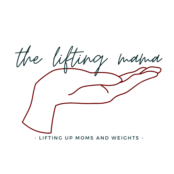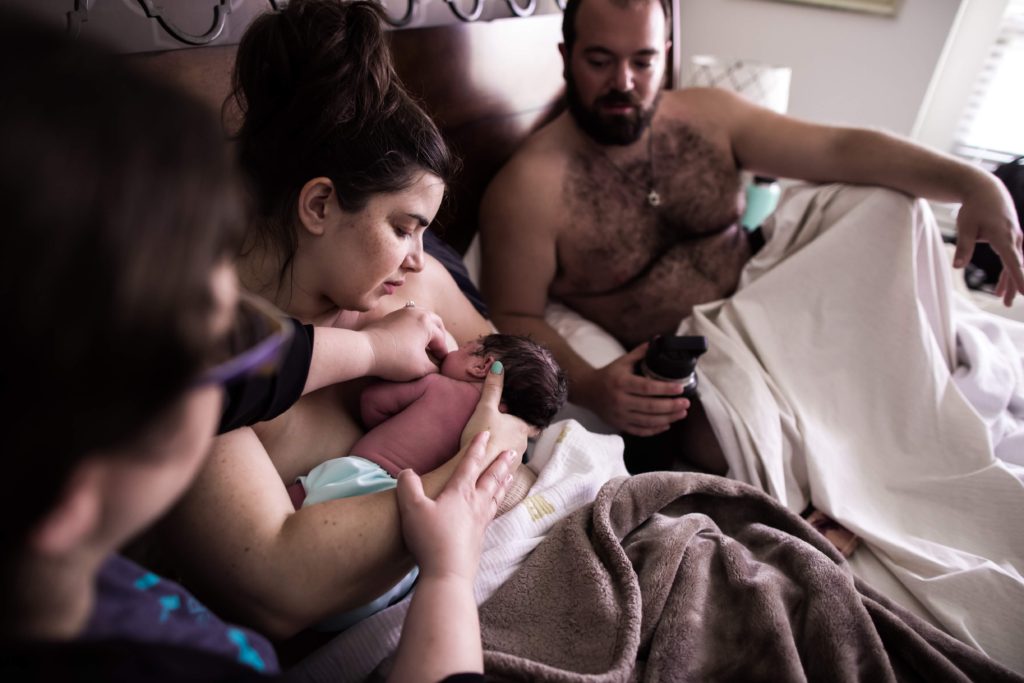“Breast is best.”
We hear this all the time, and the fact is, it’s true.
(I can literally feel the eyes rolling and the cursing-outs through the screen. Bear with me!)
“Breast is best” is not just a catchy slogan; it’s a biological fact. No man-made substance can replace what a woman’s body creates specifically for her baby and his current needs. It’s just not possible. Breastmilk changes by the hour based upon a baby’s specific and ever-changing needs. It’s full of eye-opening cortisol in the morning and melatonin in the evening; it produces antibodies on the fly for any germs mom and baby interact with throughout the day; it has natural probiotics to help a baby produce a healthy GI tract, and so, SO much more. Breastmilk truly is a miracle. Additionally, the act of nursing is bigger than just milk or food. It’s comfort, pain relief, love, safety, security, regulation, closeness, and connection.
There is a lot of pushback on the “breast is best” idea, saying it shames moms who can’t or won’t breastfeed. But in reality, ignoring the fact the breastmilk truly is best for a baby doesn’t solve the root of that shame. Replacing “breast is best” with “fed is best” doesn’t help either. Fed is the bare minimum. I think we can all agree there. If we had true education on infant feeding, the benefits of breastmilk, and actually support struggling mamas, the shame would go away.
To be very honest, I was embarrassed that my son wouldn’t nurse. I felt like I was failing with one of the most basic aspects of motherhood. But I luckily had true support that helped me understand all of my options since nursing wasn’t happening. Without the network of amazing women and the support of my husband, I would have ended up formula feeding my son and missing out on one of the greatest gifts I will ever be able to give him. I was able to exclusively breastfeed him in an unconventional way, but we did it, and I am so grateful I had support to show me how.
Unfortunately, we live in a culture where formula and massive guilt has become the norm for many new mothers. Why? Because society says “breast is best” and then just walks away. No explanation, no assistance, no support. There’s no doubt that the majority of mamas struggle at the beginning of their breastfeeding journey. But why are we so quick to throw in the towel? Why have entire industries been built on promoting this self-doubt? Why do we let ourselves believe we can’t do it?
There is very little meaningful education and support for mothers in regards to breastfeeding. Many mothers depend on their pediatrician to advise their feeding, but the fact is most pediatricians have little to no education in lactation and infant feeding beyond what the formula company rep has told them. I was set up for success – I researched a ton, considered myself very well prepared to breastfeed, and I lucked out with an actually knowledgeable pediatrician – and I STILL struggled massively. To realize that one of the most natural things in life doesn’t come naturally is frustrating and defeating.
By the age of 1 week, just above 50% of babies in the USA are exclusively breastfed. By the age of 6 months, that number drops drastically to about 15% of babies. Mothers are constantly told their breastmilk isn’t “enough” for their babies based on growth charts that originated from formula manufacturers. Growth charts found on the CDC website “are based primarily on formula-fed infants” which makes breastfed babies on average seem to be too small. By comparison, growth charts used by the WHO are based on breastfed babies. Because the CDC is the American standard, pediatricians will use the CDC chart, have growth concerns about a breastfed baby, recommend formula supplementation, and the cycle continues. The reality is formula provides consistent nutrition with consistent caloric intake whereas breastmilk’s nutritional composition adjusts according to the needs of a baby. This leads to very different growth patterns, one more linear and the other ebbing and flowing. Mothers are told they aren’t producing enough from the moment a baby is born (even though a newborn takes at most 2 teaspoons a feeding, and cluster feeding isn’t a sign that there’s not enough milk). Mothers are told their babies will sleep longer and better if they’re “topped off” with formula at night even though studies have shown time and time again that breastfed and formula fed babies sleep the same amount of time at night (just at different intervals). Mothers are told to cover up or to not feed their babies in public creating an aura of shame around nursing.
Please understand that while I am a huge proponent of breastfeeding via nursing, that does not mean I am anti-formula. There are many reasons why a mother does not breastfeed her child, and that’s ok. I personally know many families that nursing truly just did not work out for (mine included), and sometimes we do need to go down a different path. My point with this post (and with all of my pro-breastfeeding posts) is to promote education and understanding of why we should aim for breastfeeding. It’s not to make people feel poorly for their choices; it’s to be part of the effort to educate and support those struggling with breastfeeding and those who don’t understand why breast is best.
Breastfeeding is HARD. I’ll be the first to say it. Clearly, my experience will show that it’s not always as simple as bringing baby to the breast. There are so many factors that can lead to difficulty breastfeeding, but does a challenge mean we should just give up before we even try? Especially when the end goal of trying is truly what’s biologically best for a child?
There was recently a call from a celebrity who said “normalize formula.” I say instead, let’s normalize education and support. Normalize the understanding that breast is truly best, and normalize the transfer of knowledge needed to succeed in nursing. Normalize nursing in public rather than having a shroud of shame around feeding your child. We do have a problem in the world of infant feeding, but normalizing formula isn’t the solution.
We don’t need the rally cries of “normalize formula,” “normalize breastfeeding,” “breast is best,” or “fed is best.” Fed is minimum. Fed is expected. In reality, understanding the nuances of infant feeding, the challenges a mama can face, and how to find the support you need is best. Education is best. Let’s make that the new catch phrase.
And remember, mama: you are more than enough for your baby. Trust your body’s abilities, ask for help, and understand what you’re capable of. It’s a lot more than we’re told.
Good resources for lactation education and support:
La Leche League – find and connect with your local chapter before your baby is born
Kelly Mom – this website has basically all of the answers
IBCLC – find a quality lactation consultant to help with any nursing issues
The Womanly Art of Breastfeeding – this book was so informative about breastfeeding and beyond
Evidence Based Birth – this is a great resource for breastfeeding and for impacts of birth decisions on nursing relationships (along with being a phenomenal resource on all things birth!)

